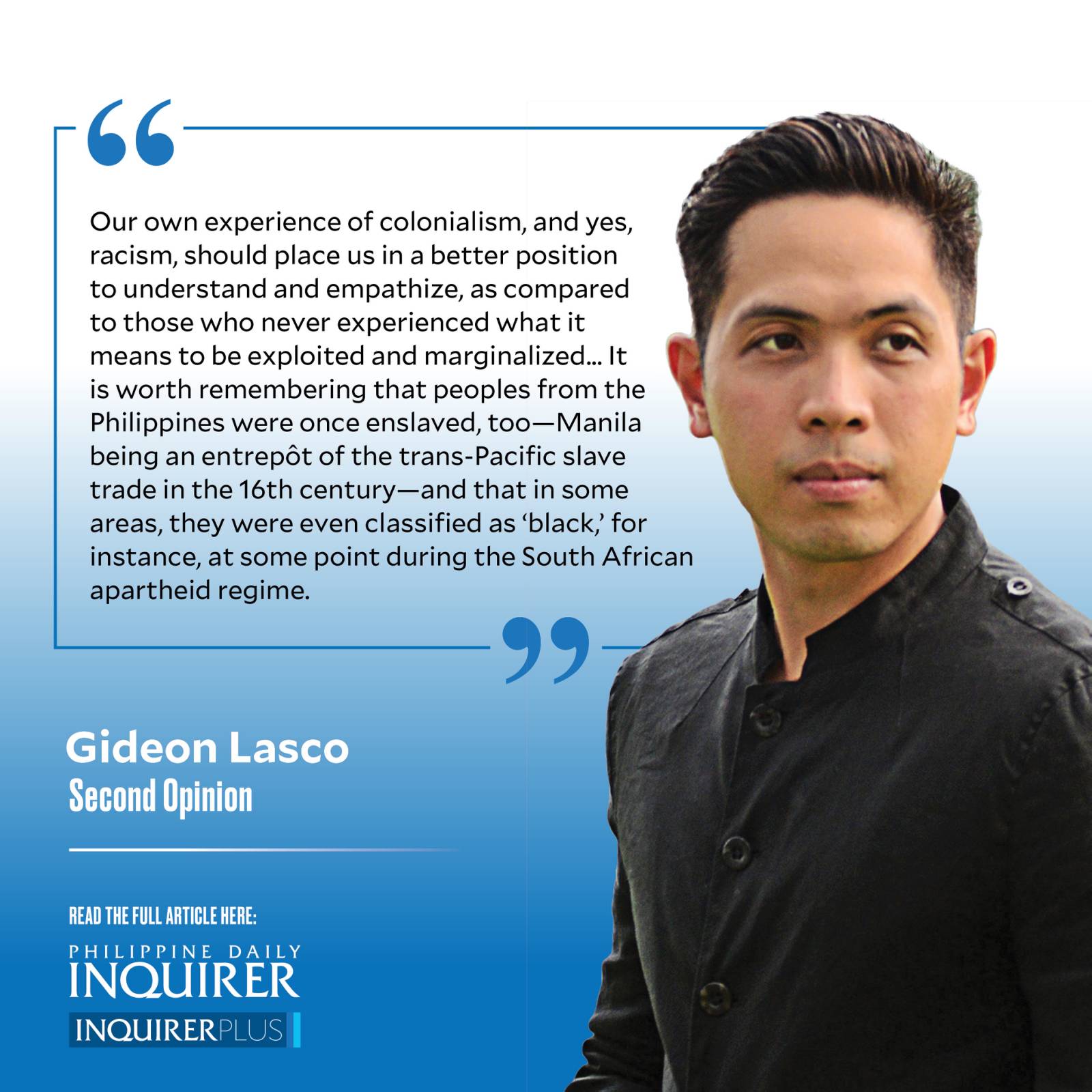‘Black Lives Matter’

SAN FRANCISCO—When Jose Rizal traveled through the United States in the springtime of 1888, taking a 10-day transcontinental train ride via metropoles like Salt Lake City, Denver, Chicago, and finally New York (“the largest cities of America with their big buildings, electric lights, and magnificent conceptions”), one of the few observations he made was the profound social inequities between whites and blacks. As he remarked, months later, in a letter to his friend Mariano Ponce: “There is no real civil liberty. In some states, the Negro cannot marry a white woman, nor a Negress a white man.”
Between then and now, much has happened on this side of the Pacific, not least of which was the civil rights movement that officially ended segregation in the 1960s, a full century after the abolition of slavery. Cognizant of his own marginality, surely Rizal, if he were alive in more recent times, would have admired the leadership of Martin Luther King Jr., the courage of Rosa Parks, and the vision—or at the least, the oratorical fluency and symbolic significance—of Barack Obama. He himself steeped in the popular (and globalizing) culture of his time, surely he would have admired black visibility and excellence in contemporary sports, music, film, literature, and other domains.
And yet, Rizal’s allusions to the prejudice, discrimination, and exclusion experienced by blacks in America remain relevant, and his observation that “America is the land par excellence of freedom but only for the whites” continues to have the painful ring of truth to it today. Beyond cases of police brutality and racial violence like that experienced by George Floyd, everyday racism is a lifelong experience for many black Americans, from facing bullying in school to enduring discrimination in the workplace, further lending resonance to the decentralized Black Lives Matter movement.
If all of the above feel distant in our own thinking and discourse, it may be partly because we never had this particular kind of racial politics, and thus we cannot fully relate to the violence, structural and real, that comprises the lived experience of black Americans in the US. Indeed, for the most, part the inequity in our country has been social, not racial, and if many Filipinos cannot identify with Kian delos Santos, how can we relate to Trayvon Martin?
Part of this, too, is our own racial attitudes that range from racism to indifference, as exemplified by no less than President Duterte. Perhaps this is reflected even in our folklore, as in the creation myth in which a deity baked people into existence: The first batch was half-baked and they became the whites; the second batch was almost burnt and they became the blacks; and the third was just right and they became the Filipinos.
Further preventing many Filipinos from seeing the need for battle cries like Black Lives Matter is the difficulty of grasping systemic racism from personal experience: Just as people set aside science in favor of anecdotal evidence, people ignore or even deny the reality of racism by pointing to an individual example of a person using the “race card” to advance their career. (Expectedly, white politicians are too happy to turn such racial issues into populist tropes and demonize efforts like critical race theory to understand the institutional context of racism in America).
This is unfortunate, because our own experience of colonialism, and yes, racism, should place us in a better position to understand and empathize, as compared to those who never experienced what it means to be exploited and marginalized. To be clear, I do not say this to conflate our experience with that of people who were enslaved, just as I do not think that “people of color” experience marginality the same way. But it is worth remembering that peoples from the Philippines were once enslaved, too—Manila being an entrepôt of the trans-Pacific slave trade in the 16th century—and that in some areas, they were even classified as “black,” for instance, at some point during the South African apartheid regime.
During the Philippine-American War, some black soldiers defected to the Philippine Army, likely identifying with the cause of self-determination and freedom from the oppression they saw in our revolutionary government. One of them, the Florida-born David Fagen, was described by the historian Vicente Rafael as an “African American man who heroically cast his lot with the Filipino revolutionaries to resist the injustice of American imperial designs.”
In the same way that they identified with us over a century ago, can we not see
ourselves in their struggle today?
—————-
glasco@inquirer.com.ph




















